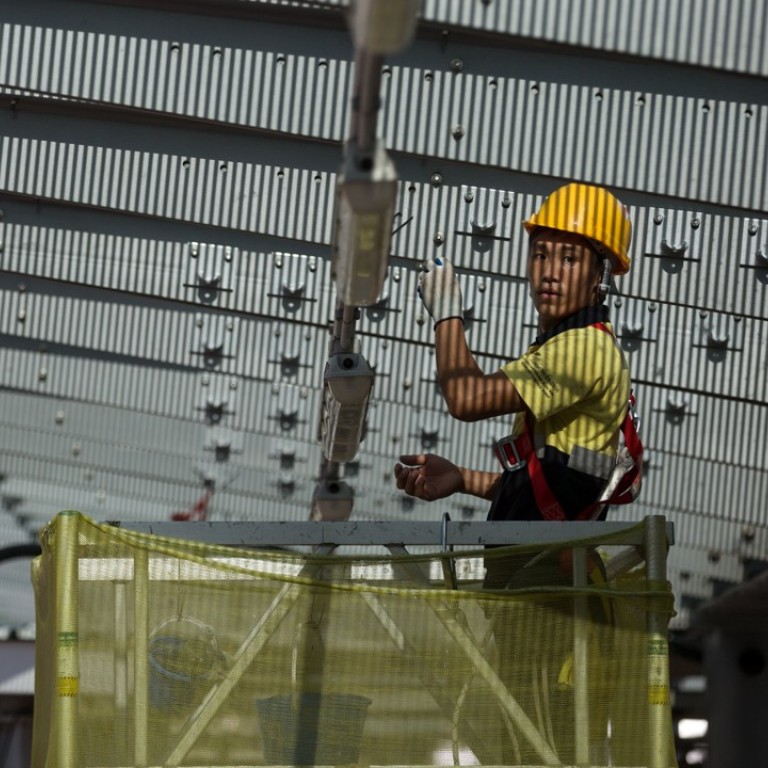
Too many unanswered questions on lease for cross-border rail link
Last month the government announced the plan for joint immigration and quarantine facilities on the cross-border express rail link to Guangzhou. Under the plan, Hong Kong would lease a quarter of the West Kowloon terminal to the mainland. Mainland officials would have almost total jurisdiction in the leased area.
SCMP, August 11
A lease is a contractual arrangement that makes exact provisions for who leases what to whom on what payment terms and for how long.
Now I am not a lawyer and I can quite well imagine some lawyers (including my daughter) throwing up their hands in dismay and saying “Doesn’t he know anything?” about some of these questions, but I pose them nonetheless.
Who is the lessor in this arrangement?
It will not do to answer “the government”. In matters such as this there is no “the government”. It has to be a distinct formal department of the government, the Financial Secretary’s Office, for instance, or, most likely the Lands Department. Where is any notice of this lease from the Lands Department then?
I ask in particular because an almost completed railway of this sort must long have come to some formal arrangement for the use of the land on which it operates.
You cannot just leave it with the Lands Department and say, “Oh, we’ll think about the terms of our lease when we start taking passengers.” You don’t ask for the keys of a rented flat and move your furniture in before you sign the lease, do you?
And in this case the deal would have to be made with the builder and operator of the line, the MTR Corporation, which is a public listed company that has a fiduciary duty to its minority shareholders.
Has anyone asked these people how they feel about being disadvantaged without compensation, purely for the convenience of the controlling shareholder? We are talking legal rights here. This might, in fact, be a question for the Securities and Futures Commission, if they dared (which they don’t).
What form is this lease to take?
We regularly grant leases to agencies and arms of the government of China but on all occasions these leases still come under the authority of the Hong Kong government, as provided in the Basic Law. If their premises are robbed they call the Hong Kong police.
In this case, however, authority is to fall directly under the sovereignty of Beijing. Mainland authorities are to have the right of arrest on the premises rather than just the right to refuse entry to the mainland.
I have never seen a Hong Kong lease of this kind before. Could we please have a draft text and some explanation of how the Basic Law’s prohibition of such mainland powers in Hong Kong is nullified by the signing of a lease? I would love to hear the logical convolutions argued in a courtroom.
And what police force do I call if I am pickpocketed after passing the turnstiles? Before the turnstiles? After the train doors close?
What is the term of this lease?
This will be a brand new lease, not one in any way carried over from pre-1997 and the Hong Kong government’s authority to grant any such lease runs out in 2047. Will the lease term therefore be a maximum of 30 years?
The problem here is that MTR amortises its tunnels, underground structures, stations and depots over 80 years or more. Will this be reduced to 30 years for the more than HK$60 billion plus of these investments on the cross-border express?
We are talking of a serious impact on net earnings here and I imagine that Beijing will be glad to tell the MTR to keep it at more than 80 years rather than an unnecessarily short period.
But will this be written in the lease then? What arm of the government of China other than National Peoples Congress has the authority to make such a sovereign concession?
What will the lease payments be?
Let’s talk money. As a public listed corporation the MTR is required to do so. Even the Lands Department cannot grant free leases without a good explanation and this is no school or hospital but a revenue generating business forced on us by a powerful mainland engineering lobby with the ear of Beijing.
Do you take a lease on a flat before even discussing rent? Why has no rent been mentioned for this lease?
I have more such questions but I am now pushing it with the boss for the length of this column.

